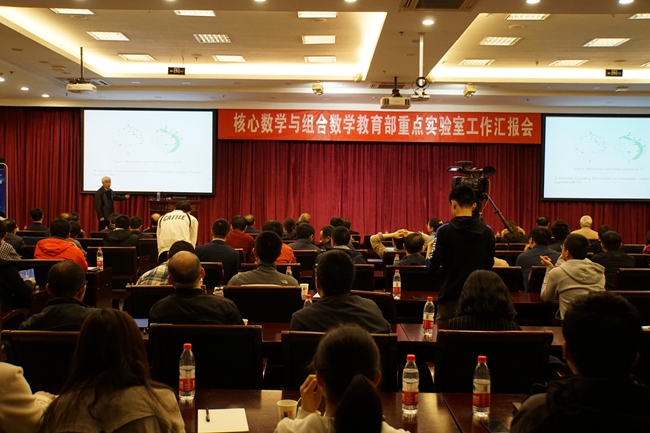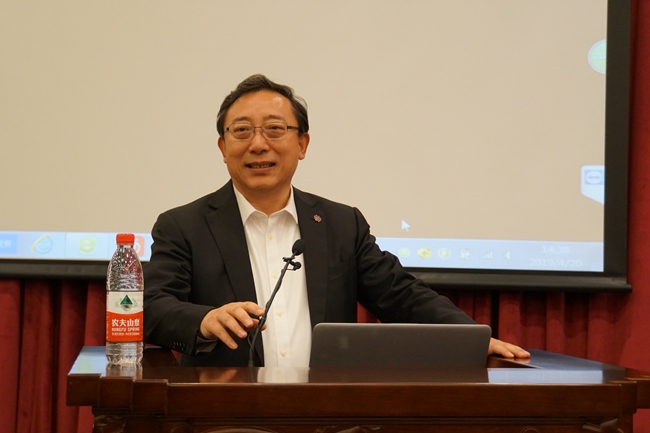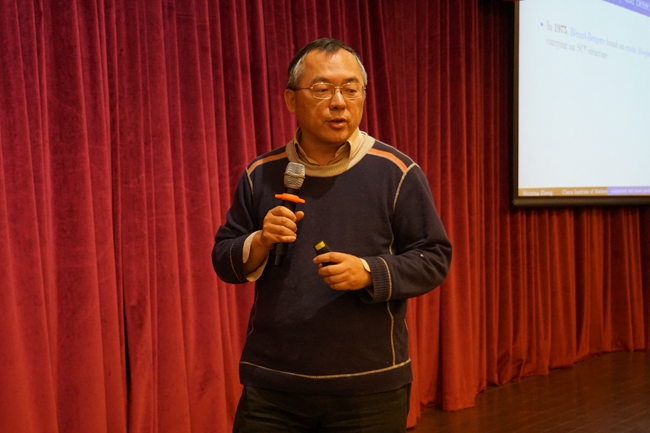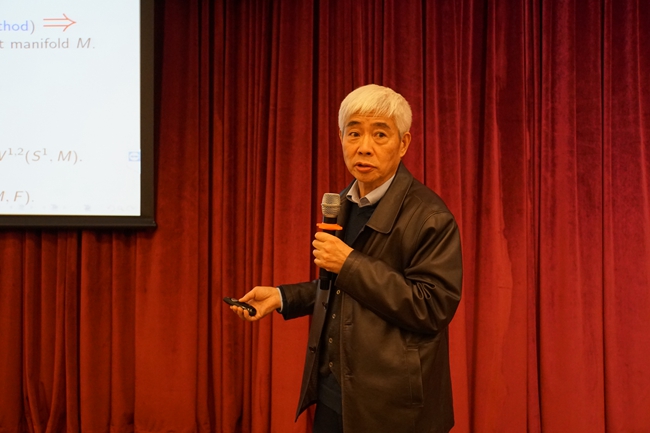Work Report Meeting and Academic Committee Meeting of the Key Laboratory of the Division of Core Mathematics and Combinatorial Mathematics Education Convened
 、
、
From Nankai University News Network (Reporter: Lin Dong, Correspondent: Liu Xuyang, Photographer: Lin Dong): Work Report Meeting and Academic Committee Meeting of the Key Laboratory of the Division of Core Mathematics and Combinatorial Mathematics Education Convened on April 20 at Chern Building, Nankai University Balitai Campus. President Cao Xuetao attended the meeting and delivered a speech, and the head of the School of Mathematical Sciences chaired the meetings. Heads of the Chern Institute of Mathematics, School of Mathematical Sciences, Combinatorial Mathematics Centre and School of Statistics and Data Science, faculty and student representatives, and heads of the Department of Science and Technology attended the meeting.

Cao Xuetao extended his welcome to the academicians and experts present, as well as the members of the Academic Committee of the Key Laboratory of the Division of Core Mathematics and Combinatorial Mathematics Education, in his speech. He said that mathematics is the foundation of all sciences and is the most beautiful language of human beings. The development of mathematics propels natural sciences, humanities and social sciences, and engineering technology forward. Mathematics, as the basic science explicitly advocated by China, is also essential in training talents. According to Cao Xuetao, this year is the 100th anniversary of Nankai University, and General Secretary Xi Jinping visited Nankai University at the beginning of the year, whose requirements for faculties and students of Nankai University were also for science and technology workers across China. To be down-to-earth, especially to create original and independent results based on the land of China, is a responsibility that all scientists share. Nankai University will be more supportive of related disciplines. Cao Xuetao expected the same thing from members of the Academic Committee, to enable basic disciplines to produce new results in the new era.
Bai Chengming, director of the Key Laboratory and director of the Chern Institute of Mathematics, reported on the laboratory titled “Review and Prospects”. He introduced the history and positioning of the Key Laboratory, the current Academic Committee and the permanent members, personnel composition and their academic positions, research fields and persons in charge, together with the discipline development and the training details of young backbone scholars in the past ten years. He also forecasted the development direction and initiatives of the Key Laboratory in the historical context of building a first-class university, first-class discipline and the new century of Nankai University

In celebration of the 100th anniversary of Nankai University, the meeting invited Academician Long Yiming to give an academic report entitled “Iteration Theories for Periodic Orbits: Old and New”, and Academician Zhang Weiping with his academic report entitled “Eta-invariant and Closed Geodesics”.
Subsequently, the Key Laboratory held an Academic Committee Meeting, chaired by Jiang Song, director of the Academic Committee. It began with the feedback from Bai Chengming, director of the Key Laboratory, on the issues of concern and opinions proposed by the Academic Committee members at the last meeting. What followed was that members spoke out separately, all of whom admitted the achievements made by the Key Laboratory In recent years, and its role in promoting the formulation and implementation of talent policies and the construction of talent teams of Nankai University.
The committee members said that Mathematics of Nankai University inherited a fine tradition. Top talents and outstanding young scholars have been attracted in recent years, and a variety of academic activities have increased educational exchanges at home and abroad. Mathematics development of Nankai University is promising, and expects a greater prospect. Talent policies of Nankai University were highly praised by the committee members, who also advised the university to fully consider the particularity of mathematics, and give more support for setting up talent special zones to attract more talents and further improve the overall development of the discipline.
Editor: Nie Jici
